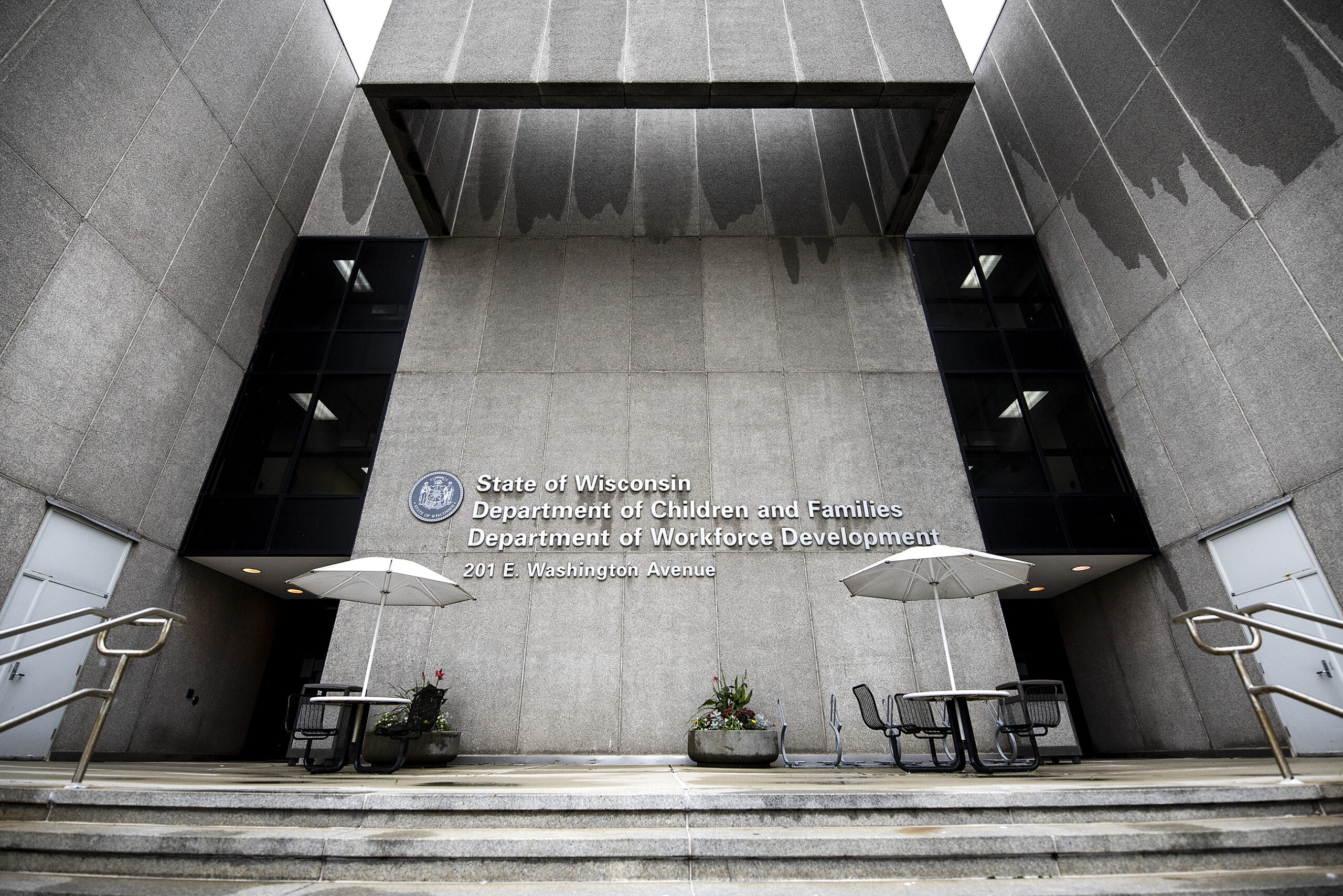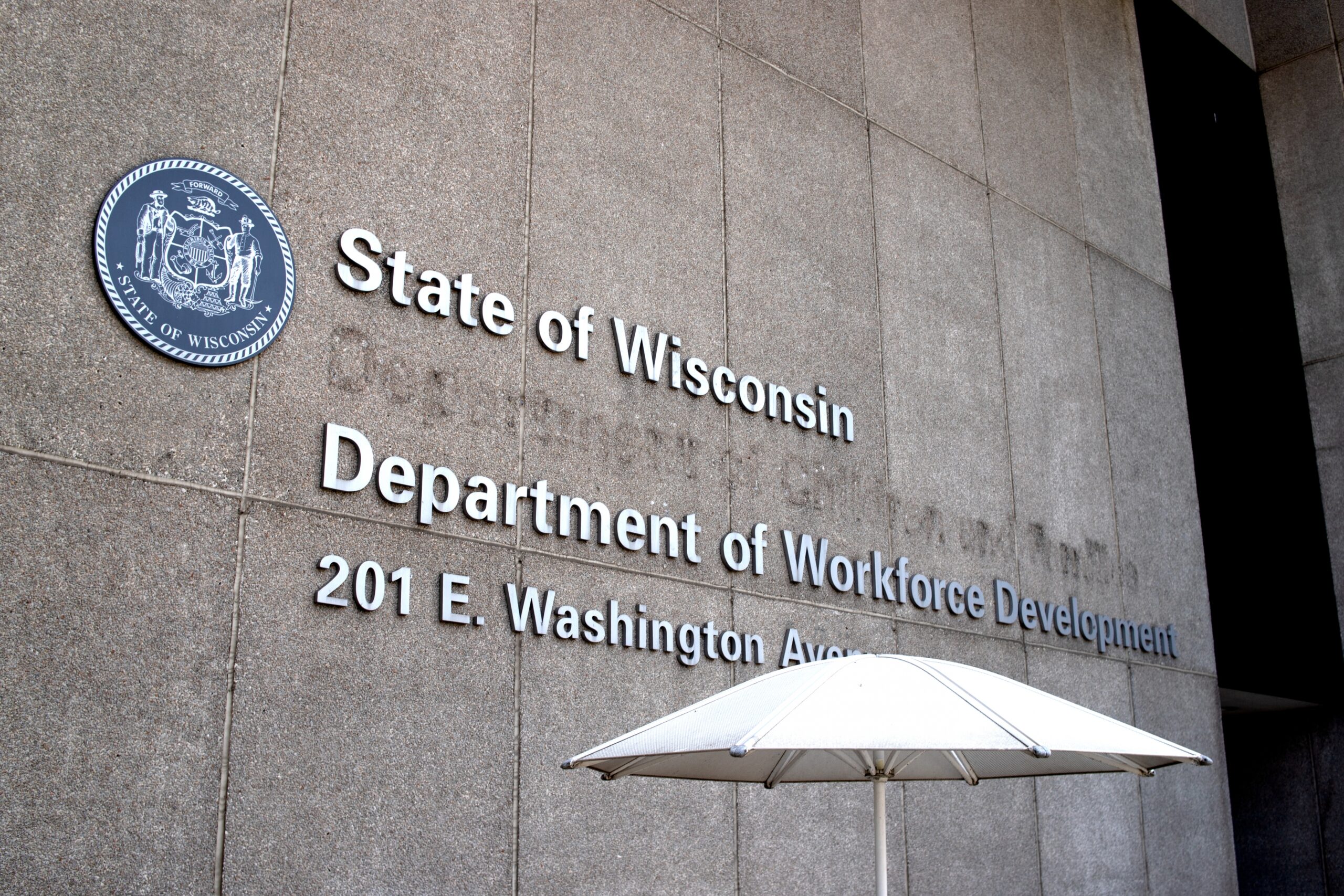Officials with the Wisconsin Department of Workforce Development (DWD) said Monday they aim to start issuing a new $300 unemployment insurance supplement to recipients “within the next few weeks.”
DWD spokesperson Grace Kim said in an email Monday evening that agency officials have several meetings scheduled this week with the U.S. Department of Labor to gather additional information about what is required to implement the latest version of the program, known as Federal Pandemic Unemployment Compensation (FPUC).
DWD officials hope to begin testing the program this week, Kim said, and begin sending out the supplements within the next few weeks. But Kim cautioned that timeline is subject to change based on new guidance the department could receive from federal officials, and if any technical issues come up when the department is testing the program.
Stay informed on the latest news
Sign up for WPR’s email newsletter.
As of midday Tuesday, nine states have started paying out the supplement, according to the online tracker UnemploymentPUA.com. Eight states have started processing payments under the program, according to the tracker.
Michele Evermore, an unemployment insurance expert with the left-leaning National Employment Law Project, said Wisconsin is slightly behind other states in rolling out the program, but not by much.
FPUC was one of three unemployment programs created by Congress in March as part of the first coronavirus aid bill. Initially, it added an extra $600 to weekly benefits for most people on unemployment. That version of the program ended July 25 in Wisconsin amid congressional inaction to extend it, with Wisconsin economists warned at the time it would be “another body blow” to the state’s economy as tens of thousands of Wisconsinites suddenly had less money to spend.
For many who were relying on unemployment, that set off a grueling, almost three-month-long stretch of only receiving state-level unemployment benefits, which max out at $370 a week in Wisconsin.
In October, DWD began paying out a $300 weekly unemployment supplement created by the Trump administration. That program, known as Lost Wages Assistance, lasted six weeks before ending in Wisconsin in early September, leaving out-of-work Wisconsinites with only state-level unemployment benefits again for more than four months.
Adam Hoffer, an associate professor of economics at the University of Wisconsin-La Crosse, acknowledged the difficulty in crafting unemployment policies in the uncertain environment COVID-19 has created. But he also said the uncertainty in federal aid for unemployed workers “makes things more difficult for households to try to plan and navigate.”
Without federal aid, many unemployment recipients have fallen behind on bills, had to rely on food pantries and have experienced deep and persistent stress over their financial well-being, according to multiple interviews with those receiving unemployment.
“Hopefully (these payments) will go out in time for people to make their mortgage or rent next month, but, you know, all of these are difficulties for people,” Evermore said.
Tessa Conroy, an expert in regional economics at UW-Madison’s Department of Agricultural and Applied Economics, said the extra unemployment aid will be particularly impactful for low-wage earners who have been among the hardest hit by the downturn.
“We’re maybe looking at a community of people who don’t have a lot of savings to begin with, so when they get this money it’s really important for meeting their day-to-day expense needs,” Conroy said.
According to DWD, it doesn’t yet know the number of Wisconsinites who will be eligible for the $300 supplement.
The agency said to be eligible a recipient needs to be receiving at least $1 in unemployment benefits under regular unemployment, Pandemic Unemployment Assistance (for self-employed and contract workers, among others), or Pandemic Emergency Unemployment Compensation (which extends regular unemployment benefits by 13 weeks).
When payments are issued they will be automatically added to a recipient’s weekly benefit. The department said the week ending Jan. 2 is the first payable week for the supplement, and the week ending March 13 will be the last.
It remains unclear if President-elect Joe Biden’s incoming administration will be able to reach a deal with Congress to either extend or increase the unemployment supplement by March 14 when the program is set to expire.
Wisconsin Public Radio, © Copyright 2025, Board of Regents of the University of Wisconsin System and Wisconsin Educational Communications Board.





